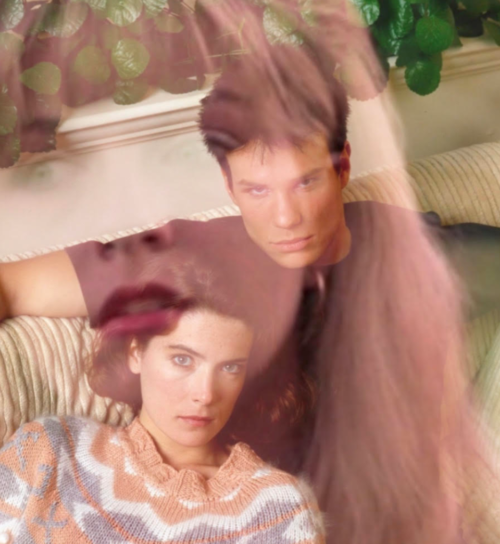While the “cognoscenti” of the few remaining New York-based pop culture “publications” would like to believe “Betty” is now an undeniable part of the “queer canon” (a term itself almost too queer to bear), one is greatly overestimating Taylor Swift’s spectrum on the Kinsey scale (though she has dated some effete men) in wanting this popular theory to be real. And while, sure, it must be granted that the name Betty is well-established as lesbianic (David Lynch, too, would name one of Naomi Watts’ characters Betty in Mulholland Drive), let’s go under the scandalous heteronormative assumption that Swift is speaking from the male perspective of James to express his regret over the garden variety fuckboy treatment of her over the summer in “betty.”
Billed as the Teenage Love Triangle of Swift’s latest album, Folklore, the story of Inez, Betty and James unfolds over, fittingly, a trilogy of songs called “cardigan,” “august” and, you guessed it, “betty.” The first is told from the point of view of Betty, who acts as the Donna (Lara Flynn Boyle) of the scenario when comparing this teenage love triangle to the one in Lynch’s Twin Peaks. She is the tried and true, the reliable, the virtuous–in short, why she’s tantamount to a cardigan in both James’ minds, hence the lyrics, “And when I felt like I was an old cardigan/Under someone’s bed/You put me on and said I was your favorite.” Even so, for as much shit as Betty and Donna can put up with in tolerating both of their respective James’ mercurial behavior (the Twin Peaks James [James Marshall]) being even more flighty because of the fact that he has a motorcycle), each one has their limits when they unearth the “affair” he’s had with the Inez/Laura (Sheryl Lee) of the configuration.
One imagines Inez is, like Laura, a little bit “edgier.” More rough-hewn. “Down for whatever.” This is undeniably exciting to someone still as unseasoned as James, looking to explore with a girl who isn’t as chaste as Betty/Donna. But one thing James doesn’t bargain for is that Betty/Donna might actually move on while he’s busy sowing his oats. Accordingly, Swift uses the analogy, “I knew you tried to change the ending/Peter losing Wendy.” Because while James might like to stay in his Neverland of youthful folly and the expected forgiveness that comes with adhering to a “boys will be boys” philosophy (toppled again of late by AOC), Betty/Donna must eventually find someone who knows her worth.
So it is that while James fell prey to the vixen charms of Inez/Laura, the latter always knew that Betty was his true “one” (to that end, Swift also starts the record with a song called “the 1”). Inez, of course, is slightly more maudlin about James than Laura, who is too hardened by being forever stalked by the ominous presence that is Bob to say such sentimental things as, “But I can see us lost in the memory/August slipped away into a moment in time/’Cause it was never mine/And I can see us twisted in bedsheets”… that is, from the corners of her mind as she now sits in resigned reflection, Inez in the lodge that looks like the one in Swift’s “cardigan” video and Laura in the Black Lodge, perpetually trapped.
Also there to disprove the queer theory is the permutation description, “Chase two girls, lose the one”–as in Betty was lost when James turned to Inez for sexual solace. This philandering indiscretion is addressed once more in the final track of the trilogy that people seem to want Swift to write in book form, whether sapphic or not; whether about Ryan Reynolds’ and Blake Lively’s kids or not (with James being the name of their daughter, further solidifying in many’s minds that the narrative has lesbianic overtones). James acknowledges, “You heard the rumors from Inez/You can’t believe a word she says/Most times, but this time it was true/The worst thing that I ever did/Was what I did to you.”
But this apology comes too little, too late, as it did for Donna, who ultimately felt overly neglected by James–kiboshing plans to be with him “forever,” as he claimed he wanted to (but then, he also said that shit to Laura before she died)–yet negated that sentiment with his constant motorcycle roving. Even his attraction to Maddy (also played by Sheryl Lee) proves to Donna just how much he’ll always be tied by an “invisible string” (a Swift allusion, of course) to Laura. So it is that both “wholesome” small town love triangles are doomed to implode, with neither party ever getting what they really want from the object of their affection. Even if we’re going with the lesbian angle, of which Laura and Donna could exhibit at times (particularly the latter, in her doting admiration of Laura), Laura’s penchant for debauchery was always going to win out over “love.” The same goes for that “whore” Inez.
Interestingly, because Taylor Swift seems to be doing the closest imitation she can of one of the songwriters she has cited as her favorite, Lana Del Rey, it seems not so coincidental that, since the work of Del Rey (particularly in the visuals of her earlier songs and music videos) has been likened to a sonic version of Lynchian narratives, Swift should herself veer toward securing a comparison to the auteur in some way. Even though, like Del Rey (who wasn’t familiar with him until people started positing comparisons), she doesn’t seem to be a strong candidate for having watched any of his filmography prior to certain parallels being made.






















